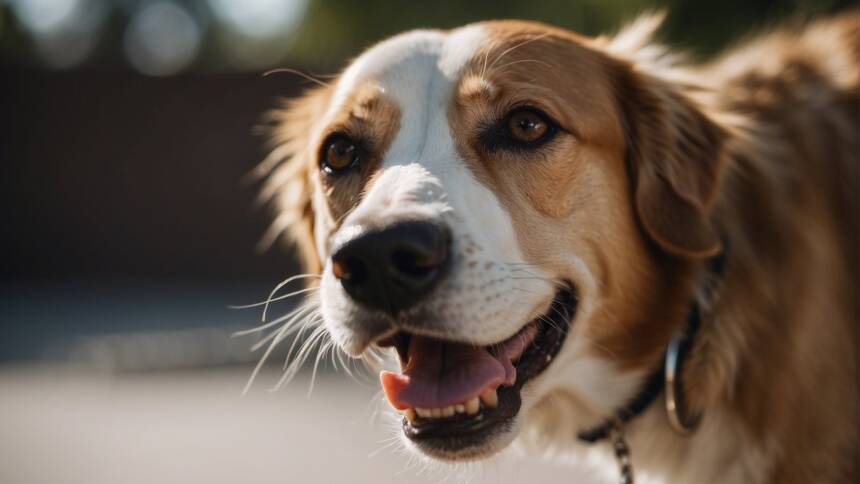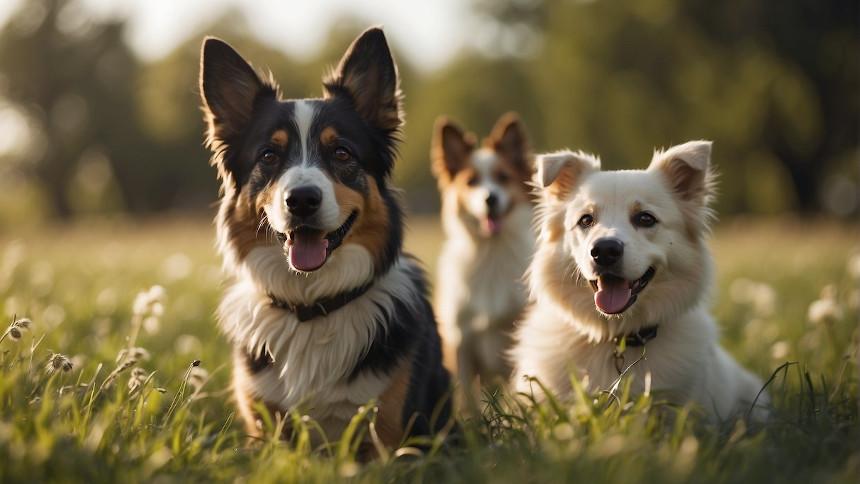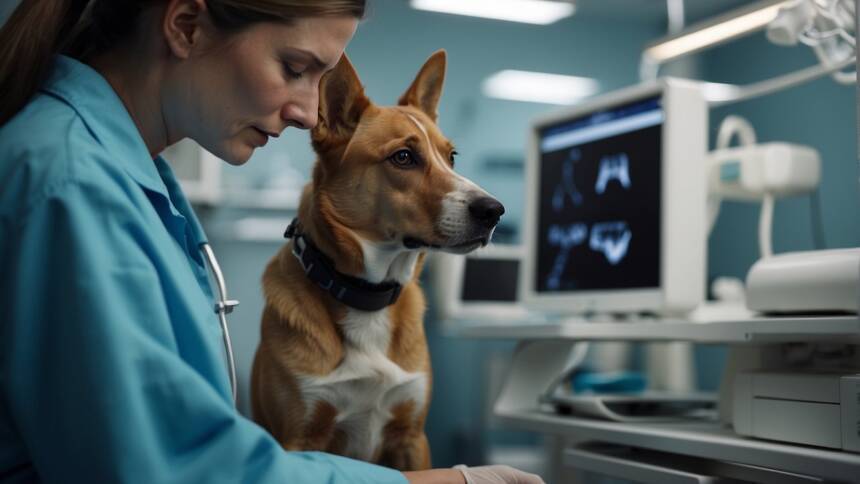Dog jaw spasms, characterized by a rapid and involuntary clenching of the jaw muscles, are a phenomenon that can concern pet owners. These spasms can manifest as teeth chattering, where a dog’s teeth rapidly click together, or more generalized jaw clenching. While it can be a benign and passing oddity, it’s essential to understand the potential causes, which range from a reaction to cold temperatures to more complex health issues.
One prevalent cause of jaw chattering in dogs is dental discomfort. Problems like periodontal disease, abscessed teeth, or broken teeth can result in significant pain, leading to jaw spasms as a canine response to distress. Similarly, anxiety and stress are other common triggers, with dogs exhibiting teeth chattering when faced with a stressful home environment, thunderstorms, fireworks, or unfamiliar situations.
In addition to stress and dental issues, neurological conditions might be at play. Seizures, for instance, can present as focal motor incidents affecting the jaw. In these cases, additional symptoms often accompany the spasms, such as drooling or changes in behavior. Given the range of possible causes, it is crucial for the health and comfort of the dog that a veterinarian assesses any persistent jaw spasm to determine the underlying issue and appropriate treatment.
Understanding Dog Jaw Spasms
Dog jaw spasms can occur for various reasons, commonly dividing into dental, neurological, and behavioral causes. Recognizing symptoms is crucial for addressing underlying health concerns.
Dental Issues: They are often a trigger for spasms. Conditions such as:
- Gum disease
- Tooth decay
- Chipped teeth
can lead to discomfort and jaw chattering.
Neurological Conditions: Dogs may experience spasms as a part of neurological issues, including:
- Focal motor seizures
- Multisystem abnormalities
Behavioral Causes: Some spasms are behavioral, linked to:
- Stress
- Anxiety
- Excitement
These factors might induce spasms or teeth grinding as a response to emotional stimuli.
When observing a dog with jaw spasms, look for these common symptoms:
- Chattering or grinding teeth
- Altered gait or posture
- Reluctance to eat or drink
- Bad breath or bleeding gums
Prompt veterinary attention is advised when such symptoms persist or are accompanied by more severe signs. A thorough examination by a veterinarian can pinpoint the precise cause and guide the treatment plan, which may include dental care, medication, or behavioral therapy.
Common Causes of Teeth Chattering in Dogs
Teeth chattering in dogs can be a symptom of various underlying issues ranging from emotional responses to serious health conditions. This section will explore some of the common causes.
Behavioral and Emotional Responses
When a dog is exposed to high-stress situations or experiences anxiety, it may result in teeth chattering. Behavioral indicators such as excessive drooling or changes in their usual demeanor might accompany this manifestation. Similarly, dogs may chatter their teeth when they are extremely excited or nervous.
Environmental Factors
Teeth chattering in dogs can sometimes be linked to external environmental factors. For instance, when the temperature drops, a dog might chatter its teeth as a natural response to cold, much like a human would. This is typically a normal reaction to the changes in temperature and should not be a cause for concern if it is the sole symptom and occurs infrequently.
Dental Health Issues
Dental health is a pivotal factor in a dog’s overall well-being and can directly affect teeth chattering. Common dental issues that can lead to teeth chattering include:
- Periodontal Disease: This encompasses any inflammation or infection affecting the structures around the teeth.
- Dental Pain: A range of problems such as gingivitis, dental abscesses, or a broken tooth can cause significant oral pain and lead to teeth chattering as a response.
Regular dental check-ups and proper oral hygiene practices, including teeth brushing, can help prevent these dental issues.
Neurological Conditions
Neurological disorders may also manifest as teeth chattering in dogs. Conditions such as focal motor seizures, which affect a small part of the brain, can cause involuntary movements including jaw spasms. If a dog exhibits teeth chattering alongside other signs like muscle twitching or loss of consciousness, it could be indicative of a neurological issue requiring veterinary attention.
Diagnosis and Examination
In the diagnosis of dog jaw spasms, a thorough examination by a veterinarian is crucial. It typically involves a physical examination, dental examination, and neurological assessment to determine the underlying cause.
Physical Examination
A veterinarian will begin with a physical examination to observe the dog’s overall health and behavior. They specifically look for abnormalities or asymmetry in the jaw area, muscle atrophy, or evidence of pain. The veterinarian may also assess the severity and pattern of the jaw spasms.
Dental Examination
Following the physical assessment, a dental examination is often performed to check for any oral health issues that could trigger jaw spasms. This examination includes:
- Visual Inspection: Evaluating the teeth and gums for signs of disease, trauma, or abnormalities.
- Palpation: Gently probing the jaw to identify any areas of pain, discomfort, or swelling.
Neurological Assessment
A comprehensive neurological assessment is essential, especially if the spasm is suspected to be a symptom of a neurological condition. This assessment may include:
- Cranial Nerve Testing: To gauge the functioning of nerves affecting jaw movement.
- Reflex Testing: For assessing the nervous system’s responses.
Diagnostic tools such as x-rays or MRI scans can be utilized to visualize bone and soft tissue, aiding in the identification of structural problems or injuries. Blood tests might be conducted to rule out systemic conditions or infections influencing neuromuscular health. A timely and accurate diagnosis is key in managing any underlying medical conditions contributing to jaw spasms.
Treatment and Management
Effective management of dog jaw spasm primarily involves medical interventions, attention to dental health, and adjustments in the dog’s environment and behavior to reduce stress.
Medical Interventions
Medical treatment for jaw spasms may include the use of muscle relaxants to alleviate spasming muscles. In cases where pain is present, prescription pain management medication is often recommended. In more severe cases, such as those caused by masticatory muscle myositis (MMM), additional medications like anti-inflammatory drugs and immunosuppressive agents may be required.
Dental Care
Dental issues can contribute to jaw spasms, and thus, dental procedures and teeth cleaning by a veterinarian are important. This can involve removing tartar, addressing periodontal disease, and extracting problematic teeth. Routine oral care, including daily teeth brushing and the use of dental chews, supports oral health and might prevent spasms related to dental distress.
Behavioral and Environmental Modification
Stress and anxiety can trigger or worsen jaw spasms in dogs. Implementing behavior modification techniques can help manage a dog’s anxiety. Providing anti-anxiety medication under the guidance of a veterinarian alongside environmental changes like adding pheromones to create a calming atmosphere may benefit. Additionally, ensuring access to toys and treats that encourage relaxation and reducing stimuli that exacerbate stress can prevent the onset of spasms.
Prevention and Care for Dog Jaw Spasms
Jaw spasms in dogs can be a sign of underlying health issues, but with attentive preventive care and strategies to manage dental health and stress, owners can help minimize occurrences. Here are some focused approaches to prevention and care.
Routine Health Check-Ups
Regular health check-ups by a veterinarian are crucial for early detection and prevention of conditions that may lead to jaw spasms. Issues such as neurological conditions, which might not be immediately visible to owners, can be identified during these visits. Annual or bi-annual examinations should be a key part of a dog’s preventive care routine.
Dental Hygiene Practices
Good dental health is essential in preventing oral cavity pain and dental conditions that may cause jaw spasms. Here are some recommended practices:
- Daily teeth brushing using canine toothpaste to reduce the risk of tooth decay and gingivitis.
- Provide dental treats and toys designed to clean teeth and massage gums, diminishing the likelihood of gingival inflammation.
- Regular professional cleanings as suggested by a veterinarian to avert any advanced dental condition.
Stress Reduction Strategies
Stress and anxiety can contribute to jaw spasms in dogs triggered by unfamiliar environments, loud noises, or stressful events like fireworks. Here are ways to relieve stress:
- Maintain a stable routine to provide a sense of security.
- Use calming aids, such as pheromone diffusers, especially during events known to cause anxiety.
- Before anticipated stressful events, such as a veterinary visit, employ stress-reduction toys and calming exercises.








